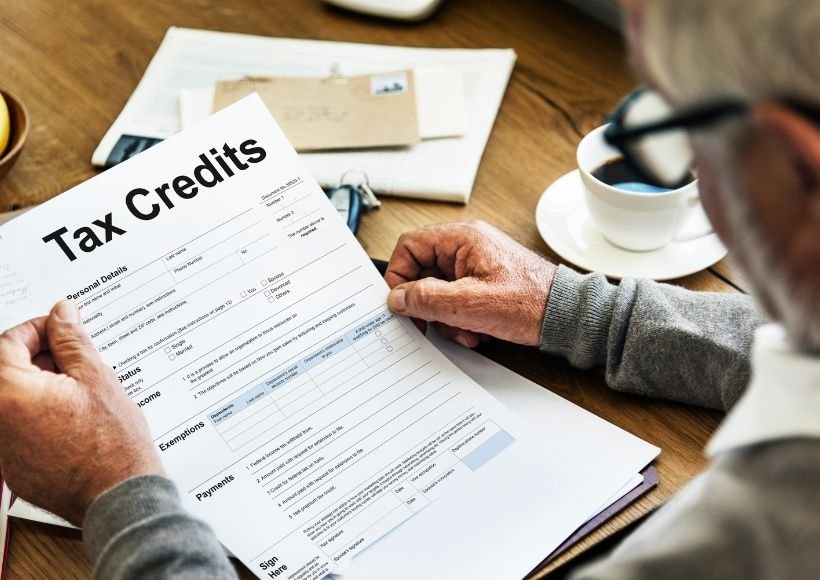How Tax Credits May Lower Your Tax Liability

No matter if you work as a freelancer or own a small business, filing your taxes may be challenging. Given the abundance of deductions and credits available, selecting which ones to apply may be challenging. Yet, by being aware of how tax credits could lower your tax due and how a 1099 tax estimator can help you with taxes, you can lessen some of the stress and save money.
Table of Contents
Self-Employed Credits
The employer and employee components of Social Security and Medicare taxes must be paid by a self-employed person. The “self-employment tax,” as it is popularly known, may be a considerable expense.
Low-income people can apply for the Earned Income Tax Credit (EITC), a refundable tax credit, including self-employed people. The credit’s maximum for the 2020 tax year is $6,660, though it varies depending on your income. You must meet specific requirements for income, filing status, and self-employment income in order to be eligible for the EITC.
The IRS also provides self-employed individuals with the Retirement Savings Contributions Credit, sometimes known as the Saver’s Credit. Via this credit, employees with low to moderate earnings are encouraged to save money for their retirement. The amount of a credit you receive is based on the contribution you make to a retirement plan, such as an IRA or 401(k). Depending on income and contributions, the credit for single filers and married couples filing jointly may be up to $1,000 and $2,000, respectively.
Tax deductions for independent contractors
As a freelancer, you may incur a number of business expenses that you can deduct from your taxes. Your overall tax burden is decreased as a result of these deductions because they lower your taxable income. Independent contractors commonly receive the following tax benefits:
Home office expenses: You could be able to write off a portion of your rent or mortgage interest, property taxes, utilities, repairs, and upkeep if a certain area of your home is frequently utilized purely for business activities.
Travel expenses: You can write off costs for hotel, meals, and transportation if you go somewhere on business. Nonetheless, the costs must be reasonable, necessary, and directly related to your business.
Educational expenses: If you sign up for classes or conferences related to your line of work, you may be able to deduct expenses like tuition, travel, and lodging.
Equipment and supplies: Any supplies or equipment you purchase for your business may be deducted as a business expense. This includes things like computers, software, office supplies, and stationery, as examples.
Tax credits for small businesses
Small businesses can take advantage of various tax benefits to lower their tax obligations. The following are a few to consider:
The Work Opportunity Tax Credit (WOTC) is a tax credit offered to companies who hire people from a variety of specified groups, such as veterans, convicted felons, and long-term jobless individuals. A varying credit amount is provided, depending on the employee’s pay and the targeted category to which they belong.
This credit is meant to encourage innovation while also offering potentially significant tax savings. Yet, the R&D credit is challenging and necessitates a substantial amount of supporting documentation.
Small Business Health Care Credit is offered for a maximum of two consecutive tax years and may be used to deduct up to 50% of the employer’s premium payment.
Tax Breaks for the Self-Employed
Self-employed people may also qualify for tax help if the COVID-19 outbreak has put them in a precarious financial condition. The CARES Act, which was adopted in 2020, provides several tax relief opportunities, some of which are listed below:
Self-employment tax payments that are late: Self-employed individuals are permitted to defer paying 50% of their self-employment taxes until December 31, 2021.
Net operating losses: The CARES Act allows businesses, including independent contractors, to carry forward net operating losses from 2018 through 2020 for a maximum of five years.
Freelancers may be able to pay less tax
To optimize your tax savings as a freelancer, you must meticulously prepare and pay close attention to every single detail. Please take into account the following advice to optimize your tax savings:
Keep accurate records: To ensure that you are accurately deducting and crediting everything, it is essential to keep complete records throughout the entire year. This group includes receipts, bank statements, and invoices.
Ask a tax professional for guidance: Working with a tax professional may help you better comprehend the nuances of tax law and ensure that you are making the most of all of your opportunities for tax savings.
Make use of tax software By using a tax preparation application like TurboTax or H&R Block, you may discover deductions and credits and simplify the tax filing process.
keeping up with modifications to tax legislation. Since tax laws and regulations are constantly changing, staying informed is essential to making sure that you are saving the most money possible on taxes.
Small business owners and independent contractors must therefore understand how tax credits function in order to lower their tax liability. Using the various credits and deductions, keeping thorough records, and consulting a tax professional can help you reduce your tax obligation and keep more of your hard-earned money.
Also Read : The Power Of Business Allowances And Tax Incentives




